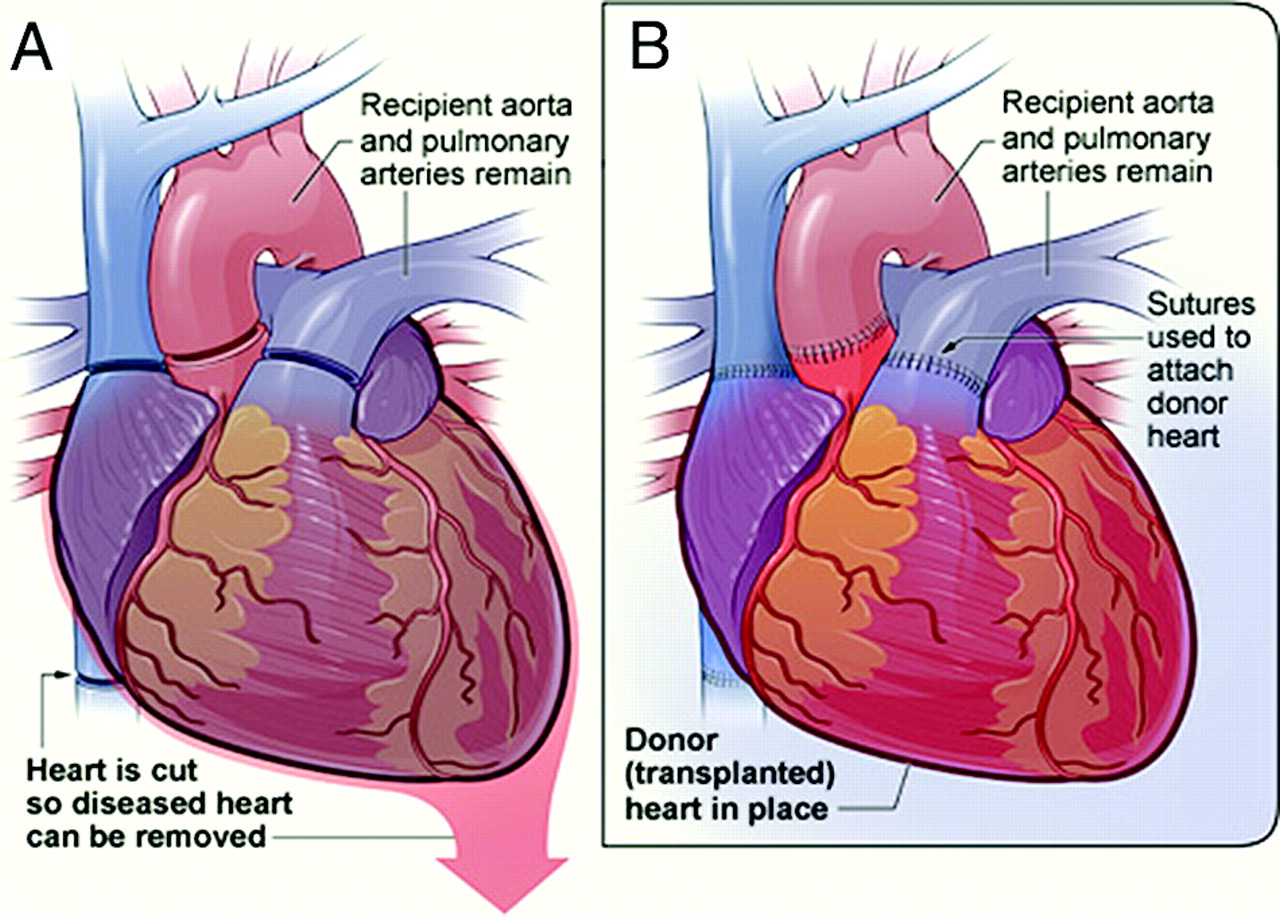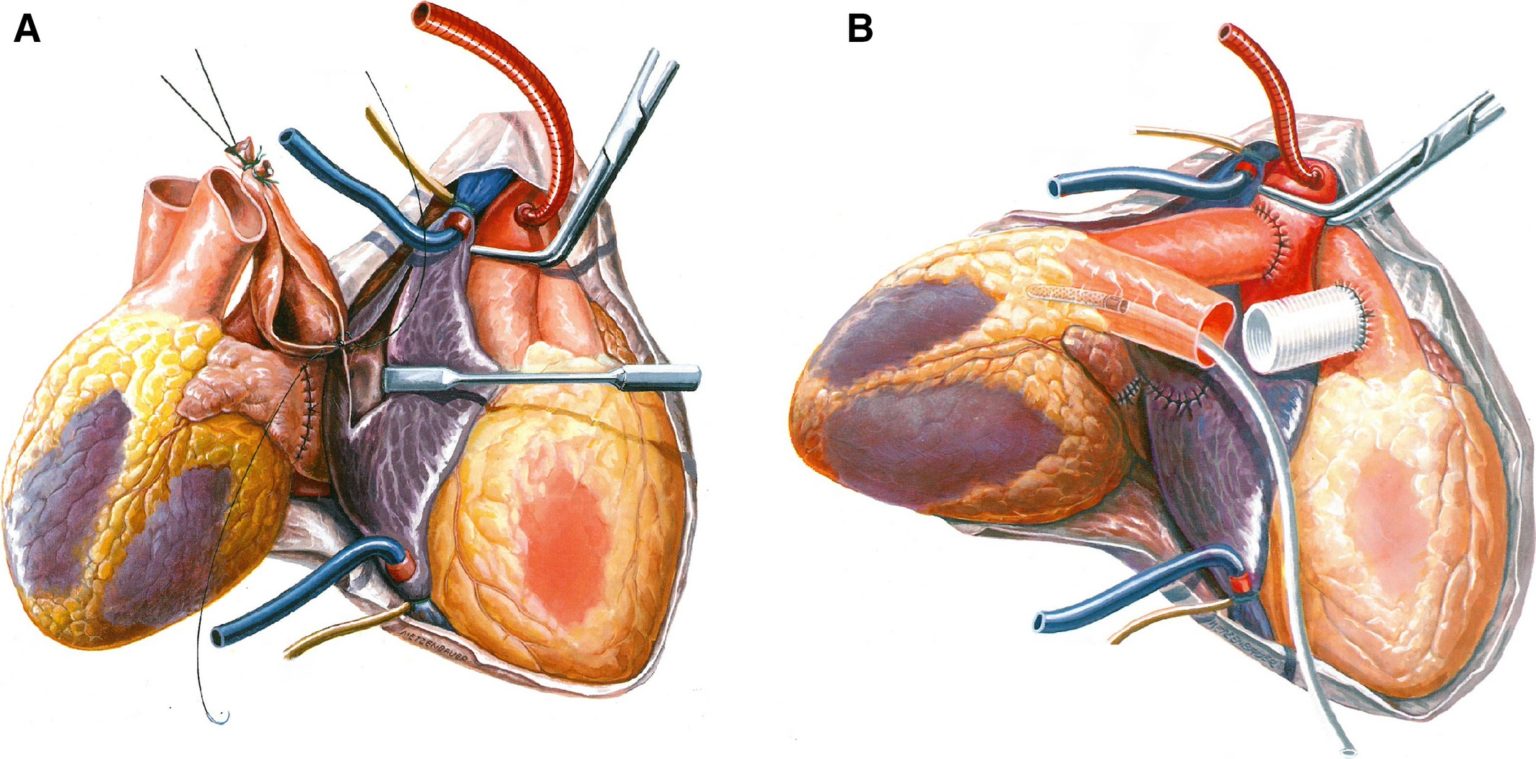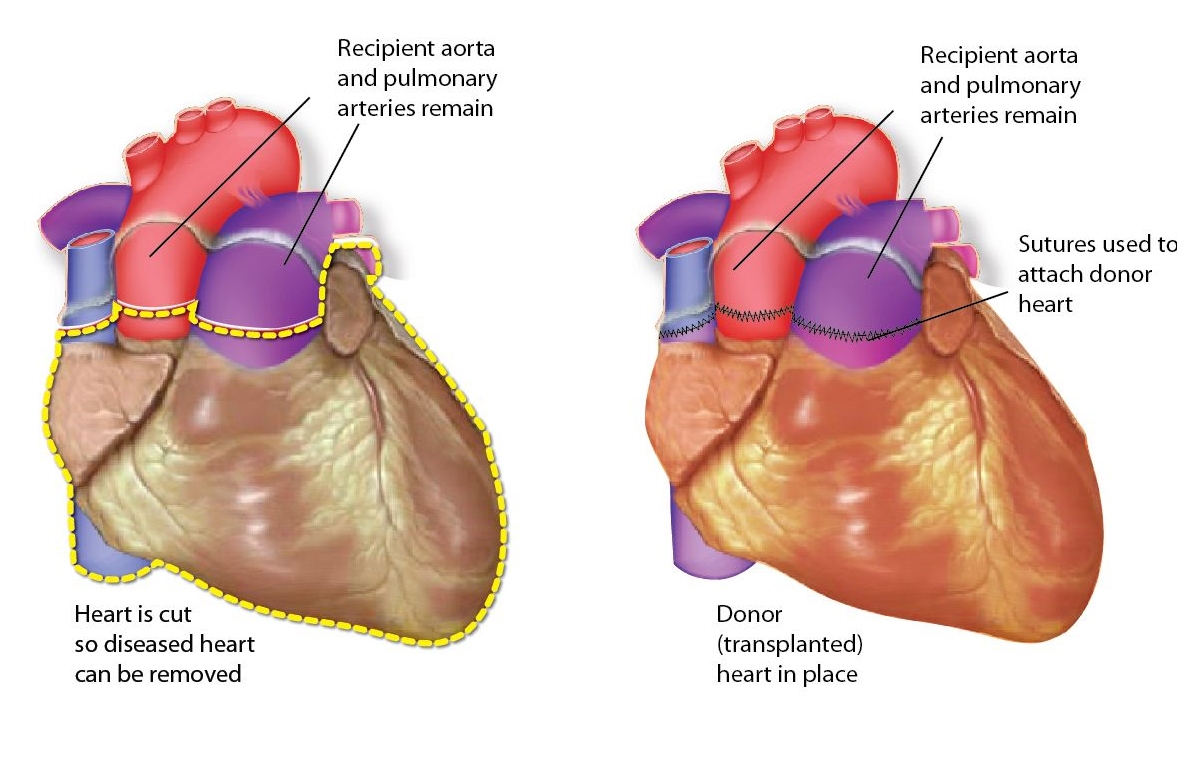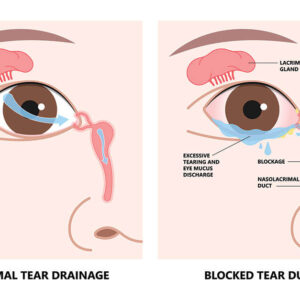Description
Familiarity with treatment
Heart transplantation is a complex and life-saving procedure performed in individuals with end-stage heart failure or severe heart conditions that cannot be effectively managed with other treatments. It involves replacing a diseased or failing heart with a healthy heart from a deceased donor.
The process of heart transplantation typically involves several steps, including:
- Evaluation and Listing: The individual undergoes a comprehensive evaluation to assess their overall health, heart function, and suitability for transplantation. If they meet the criteria, they are placed on a waiting list for a suitable donor heart.
- Donor Matching: Donor hearts are matched to recipients based on factors such as blood type, body size, tissue compatibility, and urgency of need. The Organ Procurement and Transplantation Network (OPTN) manages the allocation of donor organs in the United States.
- Surgery: Once a suitable donor heart becomes available, the recipient undergoes the transplantation surgery. The surgeon removes the recipient’s diseased heart and replaces it with the healthy donor heart. The new heart is connected to the recipient’s blood vessels and the major arteries and veins of the heart.
- Postoperative Care: After the surgery, the recipient is closely monitored in the intensive care unit (ICU) for a period of time. Medications are administered to prevent organ rejection and manage other postoperative complications. The individual will need to take immunosuppressant medications for the rest of their life to prevent rejection of the transplanted heart.
- Recovery and Rehabilitation: Following the hospital stay, the recipient enters a period of recovery and rehabilitation. This may involve physical therapy, cardiac rehabilitation, and ongoing medical follow-up to monitor the function of the transplanted heart and manage any potential complications.
Who is it suitable for?
Heart transplantation is typically considered as a treatment option for individuals with end-stage heart failure or severe heart conditions that cannot be effectively managed with other treatments. It may be suitable for individuals who meet certain criteria, including:
- Severe Heart Failure: Heart transplantation is considered for individuals with advanced heart failure that significantly impairs their quality of life and limits their ability to perform daily activities. This includes individuals who have symptoms such as severe shortness of breath, fatigue, chest pain, and fluid retention despite optimal medical therapy.
- Declining Heart Function: Heart transplantation may be appropriate for individuals whose heart function continues to deteriorate despite medical management, including the use of medications, cardiac resynchronization therapy (CRT), or ventricular assist devices (VADs).
- Non-Responsive to Other Treatments: Individuals who have not responded well to other treatments for heart failure, such as medication adjustments, lifestyle modifications, or surgical interventions like coronary artery bypass grafting (CABG) or valve repair/replacement, may be considered for heart transplantation.
- Life-Threatening Heart Conditions: Heart transplantation may be suitable for individuals with life-threatening heart conditions, such as certain types of cardiomyopathy, congenital heart defects, or coronary artery disease that cannot be effectively treated with other interventions.
- Good Overall Health: Candidates for heart transplantation should have good overall health apart from their heart condition. They should be free from other significant organ dysfunction or diseases that would significantly impact their ability to tolerate the surgery and the lifelong immunosuppressive medications required after transplantation.
- Psychosocial Factors: Psychosocial factors, such as a strong support system, good compliance with medical treatment, and the ability to adhere to the post-transplant care regimen, are also considered when determining suitability for heart transplantation.
Who is it not suitable for?
While heart transplantation can be a life-saving procedure for many individuals with end-stage heart failure, there are certain situations in which it may not be considered suitable. Some factors that may make a person ineligible for heart transplantation include:
- Advanced Age: Advanced age alone does not automatically exclude someone from being considered for a heart transplant. However, age-related factors such as overall health, comorbidities, and the potential for post-transplant complications may be taken into account when evaluating suitability.
- Significant Comorbidities: The presence of significant comorbidities, such as severe kidney disease, liver disease, lung disease, or other organ dysfunction, may make a person ineligible for heart transplantation. These conditions can increase the risks associated with the surgery and post-transplant care.
- Active Infections or Cancer: Active infections, including systemic infections or infections in the heart, may make a person ineligible for heart transplantation until the infection is successfully treated. Similarly, active cancer or a recent history of cancer may be a contraindication for heart transplantation due to the potential for cancer recurrence or complications related to immunosuppressive medications.
- Irreversible Organ Damage: If there is irreversible damage to other vital organs, such as the kidneys, liver, or lungs, that would significantly impact the person’s overall health and ability to tolerate the surgery and post-transplant care, heart transplantation may not be considered suitable.
- Severe Pulmonary Hypertension: Pulmonary hypertension refers to high blood pressure in the arteries of the lungs. If a person has severe pulmonary hypertension that is not responsive to medical therapy, it may make heart transplantation more challenging and less likely to be successful.
- Non-Compliance or Psychosocial Issues: Heart transplantation requires strict adherence to post-transplant care, including taking immunosuppressive medications, attending regular follow-up appointments, and making necessary lifestyle modifications. Individuals who have a history of non-compliance with medical treatment or have significant psychosocial issues that may impact their ability to adhere to the post-transplant care plan may not be considered suitable candidates.
Advantages
Heart transplantation offers several potential advantages for individuals with end-stage heart failure or severe heart conditions that cannot be effectively managed with other treatments. Some of the advantages of heart transplantation include:
- Improved Quality of Life: Heart transplantation can significantly improve the quality of life for individuals with advanced heart failure. It can relieve symptoms such as severe shortness of breath, fatigue, chest pain, and fluid retention, allowing individuals to engage in activities they were previously unable to do.
- Increased Survival Rates: Heart transplantation has shown to improve survival rates in individuals with end-stage heart failure. It can provide a new, healthy heart that can effectively pump blood and support the body’s oxygen and nutrient needs.
- Restoration of Heart Function: Heart transplantation replaces a diseased or failing heart with a healthy heart from a donor. This allows for the restoration of normal heart function, improving overall cardiovascular health and reducing the risk of complications associated with heart failure.
- Potential Cure for Heart Failure: Heart transplantation has the potential to cure heart failure in individuals who have exhausted other treatment options. With a successful transplant, the new heart can provide long-term support and function, allowing individuals to lead a more normal and active life.
- Relief from Medications and Interventions: Heart transplantation can reduce or eliminate the need for medications and interventions that were previously required to manage heart failure. This can include reducing or stopping medications for symptom management, reducing the need for hospitalizations, and eliminating the need for mechanical circulatory support devices.
- Psychological and Emotional Benefits: Heart transplantation can provide psychological and emotional benefits, as individuals often experience a sense of relief, hope, and improved mental well-being after receiving a new heart. It can also alleviate the anxiety and stress associated with living with advanced heart failure.
Complications
A heart transplant is a complex surgical procedure that involves replacing a diseased heart with a healthy one from a donor. While heart transplantation can be life-saving, there are potential complications that can arise. It’s important to note that the specific risks and complications can vary depending on individual factors such as overall health, age, and the specific circumstances of the transplant. Here are some of the potential complications associated with heart transplant:
Rejection: One of the most common complications of a heart transplant is rejection of the donor heart. This occurs when the immune system recognizes the transplanted heart as foreign and attacks it. Rejection can occur in the days, weeks, or months after the transplant, and sometimes even years later. Immunosuppressant medications are prescribed to reduce the risk of rejection, but it cannot always be completely prevented 1 2.
Infection: Infections can occur after any surgery, including heart transplantation. The use of immunosuppressant medications to prevent rejection can increase the risk of infections. Common infections that can occur after a heart transplant include surgical site infections, pneumonia, urinary tract infections, and viral infections. Close monitoring and appropriate treatment are essential to manage infections.
Bleeding: Bleeding during or after the surgery is a potential complication of heart transplant. Surgeons take precautions to minimize the risk of bleeding, but it can still occur. Blood transfusions or surgical interventions may be necessary to control bleeding 1.
Blood clots: Blood clots can form after a heart transplant, which can lead to serious complications such as heart attack, stroke, or lung problems. Medications are often prescribed to prevent blood clot formation 1.
Breathing problems: Some patients may experience breathing problems after a heart transplant. This can be due to various factors such as fluid accumulation in the lungs, infection, or rejection. Close monitoring and appropriate treatment are important to manage breathing difficulties.
Kidney failure: The use of immunosuppressant medications can sometimes affect kidney function. Kidney failure can occur as a potential complication of heart transplant. Regular monitoring of kidney function and appropriate management are necessary to prevent or manage kidney failure 1.
Coronary allograft vasculopathy (CAV): CAV is a condition where the blood vessels that carry blood to the transplanted heart become thick and hard. This can cause serious heart muscle damage. Regular monitoring and appropriate interventions are important to manage CAV 1.
Failure of the donor heart: In some cases, the transplanted heart may fail to function properly. This can be due to various factors such as rejection, infection, or other complications. Close monitoring and appropriate interventions are necessary to manage the failure of the donor heart 1.
Death: While rare, there is a risk of death associated with any surgical procedure, including heart transplant. The overall survival rates after heart transplantation have improved over the years, but it’s important to recognize that there are risks involved. The benefits of a heart transplant often outweigh the risks for patients with end-stage heart failure 1.
Previous care
Before a heart transplant, patients with end-stage heart failure typically receive comprehensive care to manage their condition and optimize their health. This care may include:
- Medications: Patients are prescribed medications to manage their heart failure symptoms and improve their heart function. These medications may include diuretics to reduce fluid buildup, beta-blockers to decrease the workload on the heart, ACE inhibitors or ARBs to relax blood vessels, and other medications to control blood pressure and heart rhythm.
- Lifestyle modifications: Patients are advised to make lifestyle changes to improve their overall health and manage their heart failure. This may include following a heart-healthy diet low in sodium and saturated fats, engaging in regular physical activity as tolerated, quitting smoking, and limiting alcohol consumption.
- Cardiac rehabilitation: Cardiac rehabilitation programs may be recommended to help patients improve their physical fitness, manage their symptoms, and reduce the risk of complications. These programs typically involve supervised exercise training, education on heart-healthy living, and emotional support.
- Device therapy: Some patients with heart failure may benefit from implantable devices such as pacemakers, implantable cardioverter-defibrillators (ICDs), or cardiac resynchronization therapy (CRT) devices. These devices help regulate the heart’s rhythm and improve its pumping function.
- Close monitoring: Patients with end-stage heart failure require regular monitoring of their symptoms, vital signs, and laboratory tests. This helps healthcare providers assess the progression of the disease, adjust medications as needed, and identify any potential complications.
- Transplant evaluation: Patients who are deemed eligible for a heart transplant undergo a thorough evaluation to assess their overall health and determine their suitability for the procedure. This evaluation may include medical tests, imaging studies, psychological assessments, and discussions about the risks and benefits of transplantation.
- Supportive care: Patients with end-stage heart failure often require emotional and psychological support to cope with the challenges of their condition. Supportive care may involve counseling, support groups, and assistance with managing the practical aspects of living with heart failure.
Aftercare
After a heart transplant, patients require ongoing care and monitoring to ensure the success of the transplant and maintain their overall health. The aftercare following a heart transplant typically includes:
- Immunosuppressant medications: Patients must take immunosuppressant medications for the rest of their lives to prevent rejection of the transplanted heart. These medications suppress the immune system and reduce the risk of the body attacking the new heart. It is crucial for patients to take these medications as prescribed and undergo regular blood tests to monitor medication levels and adjust dosages as needed.
- Regular follow-up appointments: Patients will have frequent follow-up appointments with their transplant team, usually in the first few months after the transplant and then at regular intervals thereafter. These appointments involve physical examinations, blood tests, imaging studies, and other tests to assess the function of the transplanted heart and monitor for any signs of rejection or complications.
- Lifestyle modifications: Patients are advised to make certain lifestyle modifications to support their heart health and overall well-being. This may include following a heart-healthy diet, engaging in regular physical activity as recommended by the transplant team, quitting smoking, limiting alcohol consumption, and managing stress.
- Infection prevention: Due to the immunosuppressant medications, heart transplant recipients are at a higher risk of infections. Patients are educated on infection prevention strategies, such as practicing good hand hygiene, avoiding contact with sick individuals, and receiving recommended vaccinations. It is important for patients to promptly report any signs or symptoms of infection to their transplant team.
- Cardiac rehabilitation: Cardiac rehabilitation may be recommended after a heart transplant to help patients regain strength, improve cardiovascular fitness, and adapt to their new heart. This may involve supervised exercise training, education on heart-healthy lifestyle habits, and emotional support.
- Medication management: In addition to immunosuppressant medications, heart transplant recipients may need to take other medications to manage other health conditions or prevent complications. These may include medications for blood pressure control, cholesterol management, and prevention of blood clots. Patients must adhere to their medication regimen and report any side effects or concerns to their healthcare team.
- Emotional and psychological support: Heart transplant can be a life-altering experience, and patients may experience a range of emotions and psychological challenges. Supportive care, including counseling, support groups, and access to mental health professionals, can help patients and their families navigate the emotional aspects of the transplant journey.
- Education and self-care: Patients and their caregivers receive education on self-care practices, including monitoring vital signs, recognizing signs of rejection or complications, managing medications, and maintaining a healthy lifestyle. This empowers patients to actively participate in their own care and make informed decisions about their health.








Reviews
There are no reviews yet.